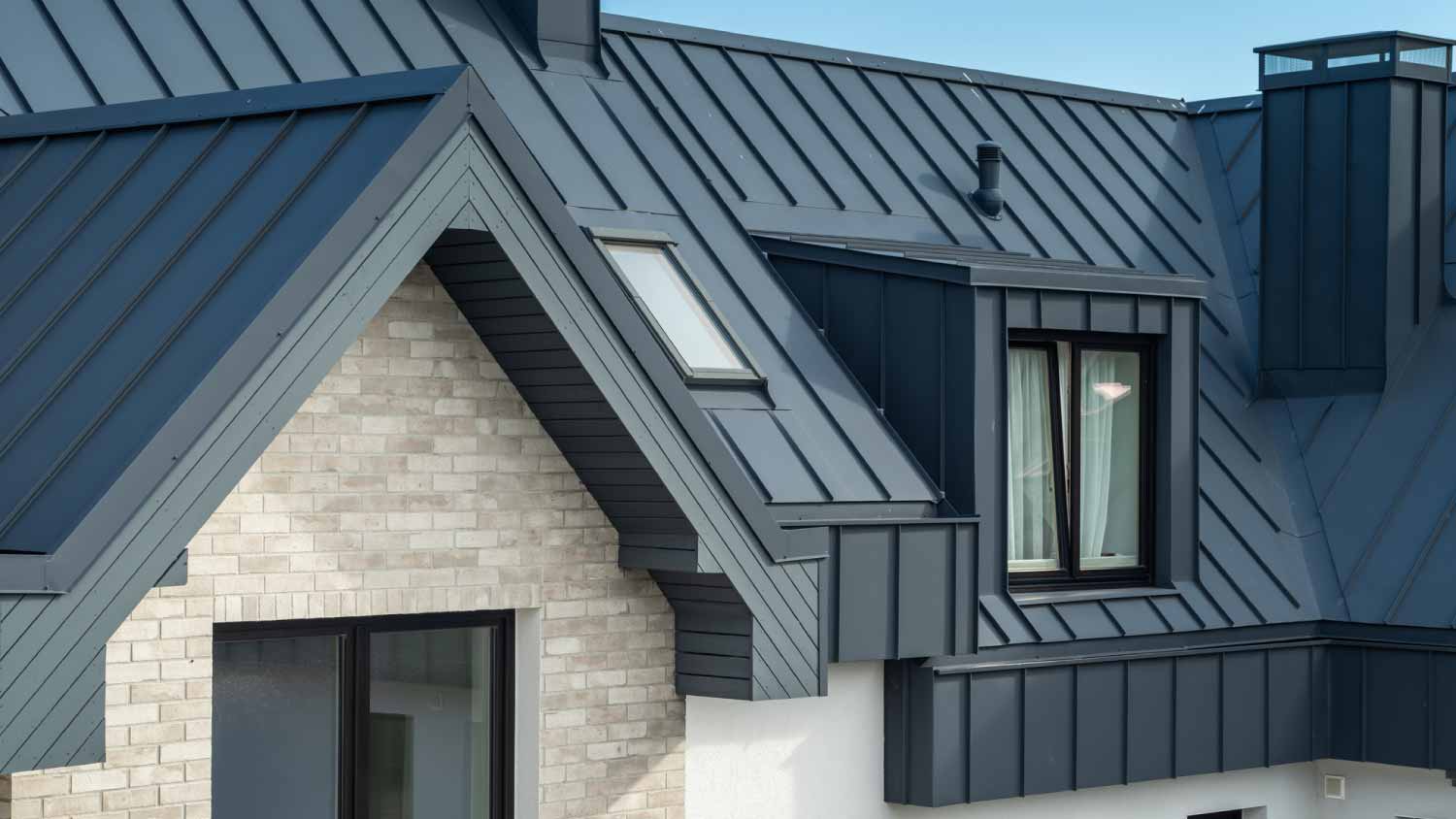Are Metal Roofs Noisy When It Rains?


Love the longevity and look of a metal roof, but afraid it’ll be too noisy when it rains? Metal roofs’ reputation for being noisy when it rains may not be earned—in fact, their noise levels are comparable to other roofing materials when properly installed. We explain why metal roofs have a bad rap when it comes to noise and how to ensure your metal roof doesn’t amplify the sound of every raindrop that hits it.
Metal Roof Noise Myths and Facts
When discussing the pros and cons of metal roofing, noise is always one of the drawbacks listed—and in some cases, that’s not completely off base. A metal roof installed over a barn or shed can be loud in a rainstorm, but those examples don’t consider how roofs are installed on houses. Unlike with outbuildings like barns and sheds, house roofs aren’t installed directly on top of the rafters and trusses—there are layers of decking and insulation that provide sound dampening and prevent energy loss.
Even if you walk on a metal roof, sound won’t necessarily transfer into the house any louder than it would with another roofing material. The necessary layers that make up a residential roof keep that noise to a minimum. The price of insulation, underlayment, and other roofing materials built into metal roof costs is comparable to what’s needed for other types of roofing, so you won’t necessarily need to pay extra to make a metal roof quieter.
Are Metal Roofs Louder Than Other Roofs?
The Engineering Acoustics Group at the Lulea University of Technology in Sweden tested the noise levels of rain on different kinds of roofing. Rain on asphalt shingles was measured at 46 decibels, while rain on a metal roof was measured at 52 decibels. So, while a metal roof is louder in the rain than an asphalt roof, people generally cannot differentiate volume differences of less than 8 decibels, so the difference isn’t as obvious as you might think.
When comparing a metal roof and a rubber roof, the sound-absorbing qualities of the rubber are likely to make it quieter than a metal roof, but that doesn’t mean the metal roof is too loud for comfort, especially when it has ample underlying materials to help absorb the noise.
How to Minimize Metal Roof Noise

If you’re still concerned about excess noise from a metal roof, there are ways to make sure it’s as quiet as possible. Ask a local metal roof installer what materials offer the best sound dampening with a metal roof to ensure you don’t hear more of the rain than you need to. Hire a roofer with extensive experience installing metal roofs—they’ll know the best ways to minimize noise.
A metal roof may lower your insurance costs, so you may be able to allocate some of those savings into maximizing your attic insulation, which will not only help to reduce noise transfer but will keep your home more energy efficient.
While it may be tempting to install a metal roof over shingles to dampen sound, doing so can create other problems, like adding too much weight to your roof’s supporting structure or speeding up the deterioration of old roofing materials. A metal roof can increase your home value, but only if it’s installed correctly.
Frequently Asked Questions
Metal roofs can last anywhere from 20 to 100 years or more when properly installed and maintained, depending on the metal type. Metal roofs’ longevity are a major benefit and can save you money in repair and replacement costs when compared to asphalt shingle roofs, which have a lifespan of 15 to 30 years on average.
Metal roofs can help keep your home cooler by reflecting heat instead of absorbing and transmitting it into your home. Homeowners who install metal roofs can see energy cost savings of up to 40%, since cooling systems don’t need to work as hard to keep the inside temperature consistent and regulated.





- Roofers
- Metal Roofing
- Roof Repair
- Roof Inspection
- Vinyl Siding Repair Contractors
- Flat Roofing Companies
- Commercial Roofing
- Emergency Roofing Companies
- Leaky Roof Repair
- Metal Roof Repair
- Business Roof Repair
- Flat Roof Repair
- Tile Roof Repair
- Slate Roofers
- Rubber Roofers
- Roofing & Siding
- Metal Roof Installation
- Affordable Roofing
- Roof Sealing
- Attic Ventilation Contractors










